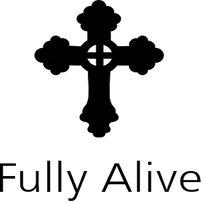|
Fully Alive’s Lenten Scriptural Commentary helps Christians get more out of Lent by taking God’s word seriously.
Mostly avoiding personal stories and anecdotes, our commentary dives deeply into the scripture readings for each day and applies them to the broader context of Lent. We use the daily Mass readings from the Catholic lectionary. If possible, read each passage slowly, taking in each word. If you find that you’ve hurried through a reading, read it over a few more times. Let the words reverberate in your heart. After you’ve let it sink in, read our Lenten Scriptural Commentary. For more information, click here. Saturday after Ash Wednesday Isaiah, in high poetic fashion, gives us more insight into how God wants us to live. Jesus acts this out by offering God’s love to those who need it the most. Readings: Is 58:9b-14/Ps 86/Lk 5:27-32 Click here to read the complete text from the USCCB website Thus says the LORD: If you remove from your midst oppression, false accusation and malicious speech; If you bestow your bread on the hungry and satisfy the afflicted; Then light shall rise for you in the darkness, and the gloom shall become for you like midday; Then the LORD will guide you always and give you plenty even on the parched land. He will renew your strength, and you shall be like a watered garden, like a spring whose water never fails. The ancient ruins shall be rebuilt for your sake, and the foundations from ages past you shall raise up; "Repairer of the breach," they shall call you, "Restorer of ruined homesteads." (cf. Is 58: 9b-14) Assume into your very being what God asks of us here: fight oppression (especially of those who can’t help themselves); protect the falsely accused; don’t speak harshly or in a foul manner; feed the hungry; comfort those struggling. Doing these things is how we live a life for God, of God, in God. Only poetry can come close to describing how God rewards those who live like this, as the latter part of this reading shows. Re-read it, taking in its beauty and meaning. Jesus saw a tax collector named Levi sitting at the customs post. He said to him, "Follow me." And leaving everything behind, he got up and followed him. (Lk 5:27) Tax collectors had a reputation for working nefariously, for cheating people. They were also wealthy and successful. Matthew (Levi) leaves it all behind – immediately – at Jesus’ call, giving up all his wealth and prestige. Would we do this? Do we do this? Then Levi gave a great banquet for him in his house, and a large crowd of tax collectors and others were at table with them. The Pharisees and their scribes complained to his disciples, saying, "Why do you eat and drink with tax collectors and sinners?" Jesus said to them in reply, "Those who are healthy do not need a physician, but the sick do. I have not come to call the righteous to repentance but sinners." (Lk 5: 27-32) As today’s first reading shows, a major theme of the Hebrew prophets is helping those who need it most. Jesus does this by going to where they are and personally calling them. He doesn’t just party with these folks, though. He calls them to repentance, to give up their sinful lives and follow Him. This is what He asks us to do every day, and He is there with us to help us every step of the way. Consider the historical reality of Jesus, when He was on earth, dining with sinners. Then realize that he does this in just as real and intimate of a way today with us when we allow Him to guide our lives. Erik Ritland is a writer and musician. The founder of Fully Alive Christian Media, he also created The Minnesota Sport Ramble and is a writer and copy editor for Music in Minnesota. He was Lead Staff Writer for Minnesota culture blogs Curious North and Hometown Hustle. Reach him via email.
0 Comments
Leave a Reply. |
Authors
Erik Ritland received his MA in Theology in 2017. He's the founder and content manager of Fully Alive Christian Media and Rambling On, copy editor and writer for Music in Minnesota, and an acclaimed songwriter. Archives
April 2019
Categories |

 RSS Feed
RSS Feed
